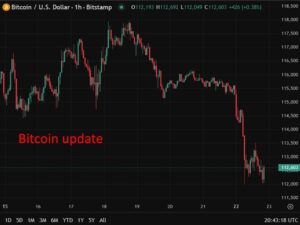Breaking free from the paycheck-to-paycheck cycle is more than just a financial shift. It’s a fundamental transformation that begins within you.
Often, the behaviors that keep us trapped in financial stagnation aren’t about money at all. They’re about mindset, habits, and attitudes that hold us back from embracing our potential.
To truly escape the paycheck-to-paycheck grind and tap into prosperity, we need to let go of these detrimental behaviors. It’s not always easy, but it’s always worth it.
Let’s explore some of the behaviors you need to say goodbye to if you want to create a life of financial freedom and purposeful living.
1) Living beyond your means
One of the most common behaviors that keep us trapped in a paycheck-to-paycheck cycle is living beyond our means. It’s a tendency that’s often driven by societal pressures or a desire to keep up appearances, rather than a reflection of our true values and needs.
This behavior manifests in many ways – from buying a car or house we can’t comfortably afford, to racking up credit card debt for luxury items or experiences. It’s easy to get caught up in the illusion of wealth these purchases create, but ultimately, they’re just keeping us chained to financial stress and limiting our freedom.
Breaking free requires recognizing and challenging this behavior. It requires us to confront the fears and insecurities that drive it, and make conscious choices that align with our financial goals and values.
This doesn’t mean denying ourselves all luxuries or pleasures. Instead, it’s about finding balance and making prudent decisions that respect our financial boundaries. It’s about choosing long-term financial health over short-term gratification.
The journey towards financial freedom begins with living within our means and making peace with the reality of our current financial situation. Only then can we begin to create a more prosperous and sustainable future.
2) Neglecting your savings
Another behavior that can keep us stuck in the paycheck-to-paycheck lifestyle is neglecting to save. This is something I’ve personally struggled with in the past. The allure of immediate gratification often outweighs the unseen benefits of saving for the future.
However, I’ve come to realize that savings aren’t just about stashing money away for a rainy day. They’re a proactive measure towards financial independence and resilience. A healthy savings habit can transform our relationship with money, shifting it from a source of stress to a tool for freedom and opportunity.
The act of saving, no matter how small the amount, is a step towards taking control of your financial destiny. It cultivates discipline, patience, and a sense of empowerment. It’s an investment in your future self and your dreams.
As acclaimed personal finance author Dave Ramsey puts it: “You must gain control over your money or the lack of it will forever control you.” This quote encapsulates exactly why saving is so crucial – it’s about seizing control and shaping our financial future on our own terms.
3) Ignoring your financial education
A significant behavior that keeps us in the paycheck-to-paycheck cycle is turning a blind eye to our financial education. It’s easy to get overwhelmed by the world of finance, with its complex terms and concepts. However, understanding the basics of money management is critical for breaking free from financial stagnation.
Investing in your financial education doesn’t mean you need to become a Wall Street expert. It’s about understanding how to budget effectively, how to save and invest wisely, and how to make informed financial decisions that align with your long-term goals and values.
I delve into these principles in one of my videos, where I share several personal freedom hacks that have significantly improved my life, including redefining success on personal terms. I recount my experience of trying to achieve societal definitions of success, such as becoming a billionaire, and realizing that a more modest and meaningful approach to life and work brought me greater happiness.
By implementing these hacks, you can break free from societal expectations and pressures, allowing you to live more authentically and contentedly. Personal freedom is about taking control of your own happiness, defining your own success, and living life on your own terms.
4) Avoiding financial responsibility
It’s a harsh truth that many of us avoid: to break free from living paycheck-to-paycheck, we must take full responsibility for our finances. This means not just blaming external factors like the economy or our employer for our financial situation, but also looking inward and acknowledging how our choices and behaviors have contributed to our current circumstances.
This is not about self-blame or guilt, but about empowerment. By recognizing that we have control over many aspects of our financial lives, we open up the possibility of change. Whether it’s cutting unnecessary expenses, seeking additional income streams, investing wisely, or learning to budget effectively, we have the power to transform our financial reality.
This aligns with one of my core beliefs: true empowerment comes from taking full responsibility for our lives. We must focus on what we can control – our attitudes, actions, and responses. This is the path to personal freedom and resilience.
It’s a challenging journey, filled with hard truths and tough decisions. But it’s also a transformative one. When we take control of our finances, we’re not just improving our bank balance – we’re reclaiming our freedom, empowering ourselves, and paving the way towards a more prosperous future.
5) Neglecting to invest in yourself
One of the behaviors that can hold us back from breaking the paycheck-to-paycheck cycle is neglecting to invest in ourselves. This isn’t solely about financial investment but also about investing time, energy, and resources into our personal growth, health, and well-being.
This could mean taking courses to upgrade our skills or broaden our knowledge. It could involve investing in a healthier lifestyle, which could result in increased productivity and fewer sick days. Or it could be as simple as dedicating time each day to self-reflection or mindfulness practice, helping to cultivate resilience and emotional intelligence.
By investing in ourselves, we increase our value – not just in the job market, but also in every area of our lives. We become better equipped to handle challenges, make informed decisions, and ultimately lead a more fulfilling life.
This belief is at the heart of my ideology: I trust in the transformative power of self-awareness and personal growth. By doing the inner work to confront our fears, challenge limiting beliefs, and cultivate self-compassion, we become more capable of creating the lives and the world we desire.
In one of my videos, I share a transformative mirror exercise featuring five powerful questions to enhance self-love and improve your relationship with yourself. This exercise is a practical way to start investing in your personal growth journey.
6) Seeking comfort over growth
It’s a human tendency to seek comfort and avoid discomfort. However, when it comes to breaking free from paycheck-to-paycheck living, this pattern can be a significant obstacle. Fear of uncertainty or change can keep us stuck in financially suffocating situations, preventing us from exploring opportunities that might lead to financial freedom.
This might mean staying in a job we dislike because it provides steady income, avoiding difficult conversations about money, or shying away from investment opportunities due to fear of loss. While these choices might offer temporary comfort, they often result in long-term financial stagnation.
Breaking these patterns requires us to embrace discomfort as a part of growth. It invites us to take calculated risks, have those tough conversations, and venture into unknown territories that could yield financial rewards. It’s about seeing obstacles not as roadblocks but as opportunities for growth and learning.
This belief aligns with my conviction that we should embrace obstacles and setbacks as opportunities for growth and learning. Instead of getting discouraged by failure, I choose to view it as feedback and an invitation to adapt and evolve.
The path towards financial freedom isn’t always comfortable, but it’s one that leads to resilience, empowerment, and ultimately, a more prosperous and fulfilling life.
7) Not setting clear financial goals
Without a clear destination in mind, it’s easy to drift aimlessly and stay stuck in the paycheck-to-paycheck cycle. Setting clear financial goals is a crucial behavior that many of us neglect. It’s not just about saying “I want to be rich” or “I want to be debt-free”. It’s about defining what those statements mean in concrete terms and setting a timeline to achieve them.
This could mean defining how much you want to save in a year, what ‘being rich’ means to you or what steps you’ll take to reduce your debt. It’s about breaking down these big ambitions into manageable, realistic goals.
These goals then become your guiding light, helping you make decisions that align with your financial vision. They give you a sense of direction and a measure of progress, making the journey towards financial freedom more structured and less overwhelming.
This is aligned with my belief in the power of creativity and innovation in our lives. Setting financial goals is an act of creativity – it involves envisioning a better future for yourself and finding innovative ways to make that vision a reality.
8) Disregarding the power of community
In our journey towards financial freedom, it’s easy to overlook the importance of community. We often view financial success as an individual endeavor, but the truth is, we don’t have to do it alone. In fact, having a supportive community can significantly boost our progress.
This could mean joining financial literacy groups, having accountability partners, or even just discussing money matters with friends and family. By sharing experiences, knowledge, and support, we not only learn from others but also build relationships based on mutual growth and success.
This aligns with my belief in the profound importance of supportive communities and authentic relationships. It’s through our connections with others that we find the courage to pursue our dreams, the resilience to overcome challenges, and the joy of shared experiences. None of us can thrive alone.
The Power of Financial Transformation
The journey to break free from paycheck-to-paycheck living is a deeply transformative one, intertwined with our attitudes, behaviors, and belief systems.
Much like the complex relationship between biochemistry and human behavior, our financial behaviors often reflect deeper aspects of our personalities and values.
When we choose to say goodbye to these eight behaviors, we’re not just changing our financial habits. We’re shifting our mindset, confronting our fears, and embracing a life of authenticity, resilience, and purpose.
This transformation is about more than just accumulating wealth. It’s about cultivating a sense of purpose, creativity, and ethical participation in the economy. It’s about aligning our financial decisions with our deepest values and using money as a tool for positive change.
As you embark on this journey towards financial freedom, remember that you’re not alone. There’s a community of individuals out there, myself included, who are committed to creating a more prosperous and just world.









